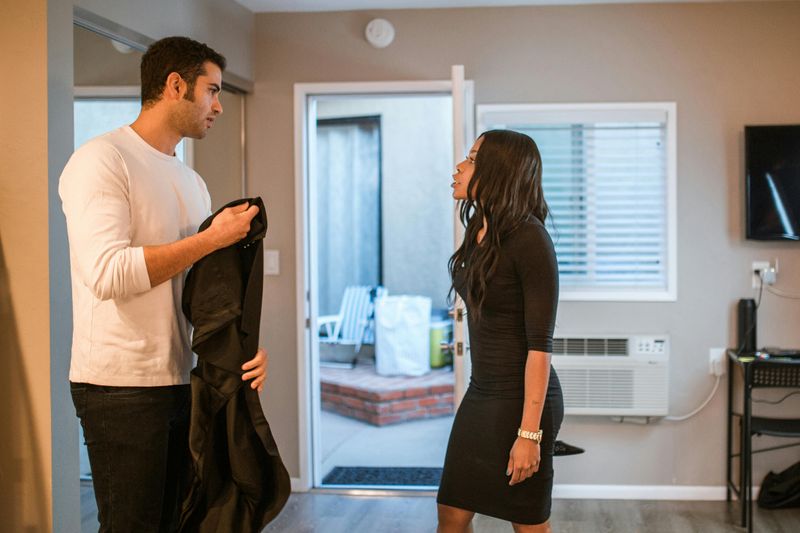Every relationship starts with stars in our eyes and butterflies in our stomachs. But over time, small behaviors can chip away at even the strongest bonds between couples. Understanding these silent relationship killers can help you spot warning signs before the damage becomes too deep. Let’s explore the everyday habits that slowly push partners away from each other.
1. Forgetting to Listen
When your partner talks but you’re scrolling through your phone or thinking about tomorrow’s meeting, you’re not really there. This half-listening becomes a pattern that makes your loved one feel invisible. They might stop sharing important thoughts because “what’s the point?” True listening means putting down distractions and making eye contact. It means asking follow-up questions that show you care about what they’re saying. Over time, couples who don’t listen to each other build walls of silence that become harder and harder to break through.
2. Taking Each Other for Granted
Remember when you used to say “thank you” for the little things? The coffee made just how you like it or the gas tank filled without asking. Those small appreciations often disappear as relationships age. Partners start expecting things rather than appreciating them. The person doing the favors feels invisible, while the other doesn’t understand why their partner seems increasingly frustrated. This quiet poison works slowly – you won’t notice it happening until one day your partner stops doing those little things altogether, wondering why they bothered in the first place.
3. Criticism Overtaking Compliments
“You always leave your socks on the floor!” “Why can’t you ever be on time?” When criticism becomes your default language, love suffocates under the weight of negativity. Words like “always” and “never” turn small annoyances into character flaws. Many couples fall into this trap without realizing how many times per day they point out what’s wrong instead of what’s right. Your brain starts cataloging your partner’s faults instead of their wonderful qualities that made you fall in love. For every criticism, relationship experts suggest offering five positive comments to maintain emotional balance in your relationship.
4. Avoiding Tough Conversations
Money problems brewing? Disagreements about parenting styles? Many couples choose peace today at the cost of tomorrow’s happiness. They sidestep difficult topics to avoid conflict, creating an illusion of harmony. Unfortunately, unaddressed issues don’t disappear – they grow underneath the surface like weeds. One partner might silently resent the other’s spending habits while smiling across the dinner table. The other might disagree with disciplining methods but say nothing to keep the peace. Eventually, these avoided conversations explode during unrelated arguments, causing much more damage than if they’d been handled when they first appeared.
5. Bringing Up Past Mistakes
“This is just like when you forgot our anniversary three years ago!” Using past errors as ammunition during current disagreements creates an atmosphere where forgiveness feels impossible. Old wounds reopen with each argument. Partners who regularly dig up the past teach each other that mistakes are permanent records that will be used against them forever. This practice makes people defensive rather than open to growth and change. Healthy couples address issues when they happen, work through them completely, and then truly put them to rest instead of keeping a mental scorecard of every wrong move their partner has ever made.
6. Neglecting Physical Touch
Hand-holding, hugs, kisses, and shoulder touches – these small physical connections often fade as relationships age. Busy schedules, stress, and familiarity can make couples forget the power of simple touch. Studies show that physical affection releases oxytocin, the bonding hormone that helps couples feel connected. Without it, partners can feel like roommates rather than lovers. The lack builds slowly – first the goodbye kisses get shorter, then morning cuddles disappear altogether. Many couples report feeling disconnected emotionally when physical touch decreases, creating a cycle where less touching leads to less intimacy of all kinds.
7. Keeping Score Instead of Teamwork
“I cooked dinner three times this week while you only did it once!” Tracking contributions creates a competitive atmosphere instead of a partnership. Scorekeeping turns love into a transaction where everything must be perfectly equal. Real relationships rarely balance perfectly at any given moment. Sometimes one person carries more weight during the other’s busy season at work or health challenges. Couples who see themselves as a team focus on their shared goals rather than individual tallies. When partners constantly measure who’s doing more, resentment grows and replaces the supportive foundation that helps relationships thrive through life’s ups and downs.
8. Public Disrespect and Humiliation
Rolling eyes when your partner tells a story at dinner with friends. Making jokes about their cooking skills in front of family. These moments of public disrespect might seem small, but they cut deeply and leave lasting scars. Your partner should feel safe knowing you’re their biggest supporter, not their first critic. Public embarrassment creates a feeling of betrayal – “if I can’t trust you to protect my dignity in front of others, where can I feel safe?” The damage multiplies when others witness it, making your partner feel ganged up on rather than supported by the person who should have their back.
9. Growing Apart Through Separate Lives
At first, it seems healthy – you have your hobbies, they have theirs. But when couples stop creating shared experiences, they begin living parallel rather than intertwined lives. One watches TV upstairs while the other reads downstairs. Weekends are spent with separate friend groups. Without regular connection points, partners lose their sense of being a team. They stop having common stories to tell and shared jokes to laugh about. The space between them grows wider with each passing month. Strong couples intentionally create rituals and activities they enjoy together, ensuring they continue building shared memories even as they maintain healthy individual interests.
10. Technology Coming Between You
Phones, tablets, laptops, and TVs – these screens often get more attention than partners do. Many couples spend their evenings scrolling side by side instead of connecting face to face. This digital wall becomes a habit neither person questions. The blue light from devices literally comes between couples in bed, replacing intimacy with social media updates and work emails. Children notice too, learning that devices deserve more attention than people do. Healthy couples create technology-free zones and times, ensuring devices enhance rather than replace real human connection. They understand that no Instagram post deserves more attention than the person they’ve chosen to build a life with.
11. Forgetting to Grow Together
People naturally change over time – developing new interests, shifting values, or discovering different goals. Problems arise when partners don’t share these evolutions with each other or make space for their partner’s growth. One person might embrace a spiritual practice while their partner dismisses it. Another might want to relocate for career advancement while their partner refuses to discuss it. These growth points become forks in the road where couples either adapt together or grow apart. Successful long-term relationships involve regular check-ins about personal dreams and goals, ensuring both people feel supported in their individual journeys while maintaining their shared path forward.











